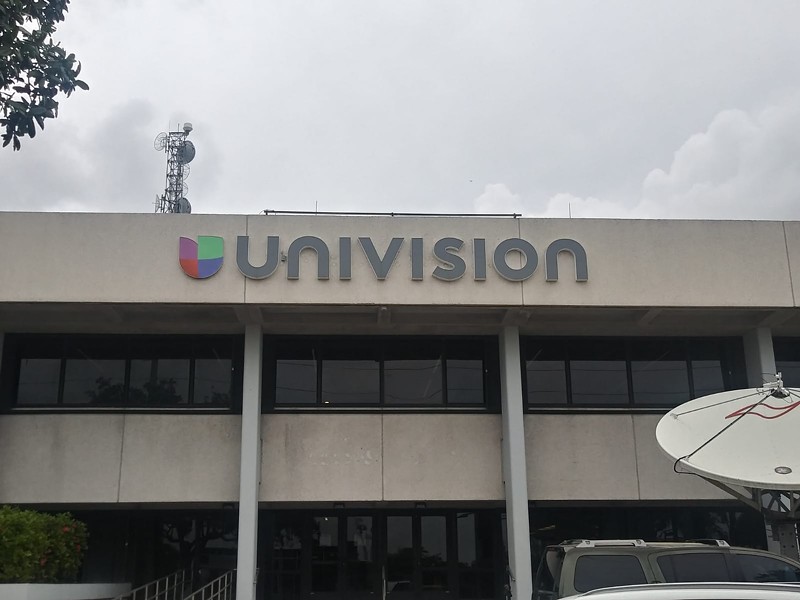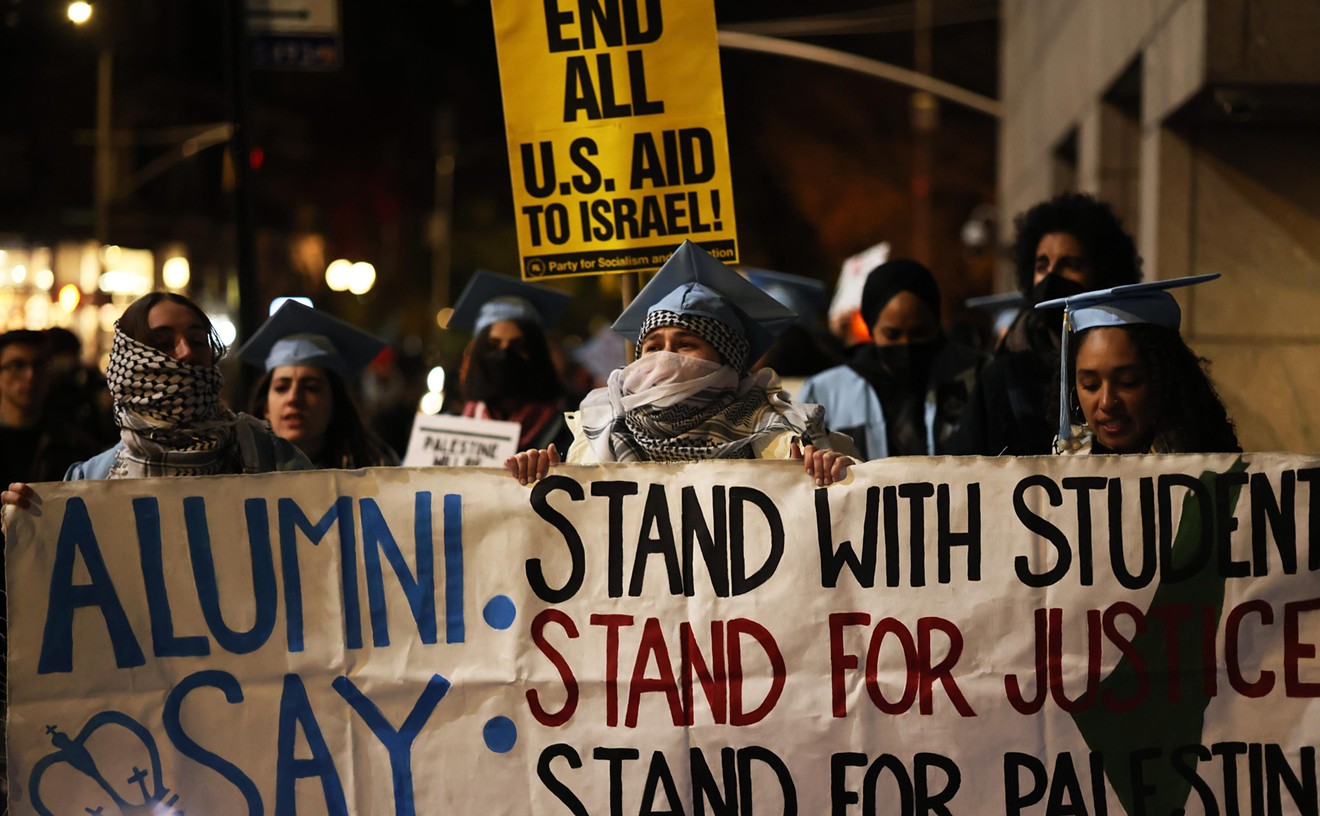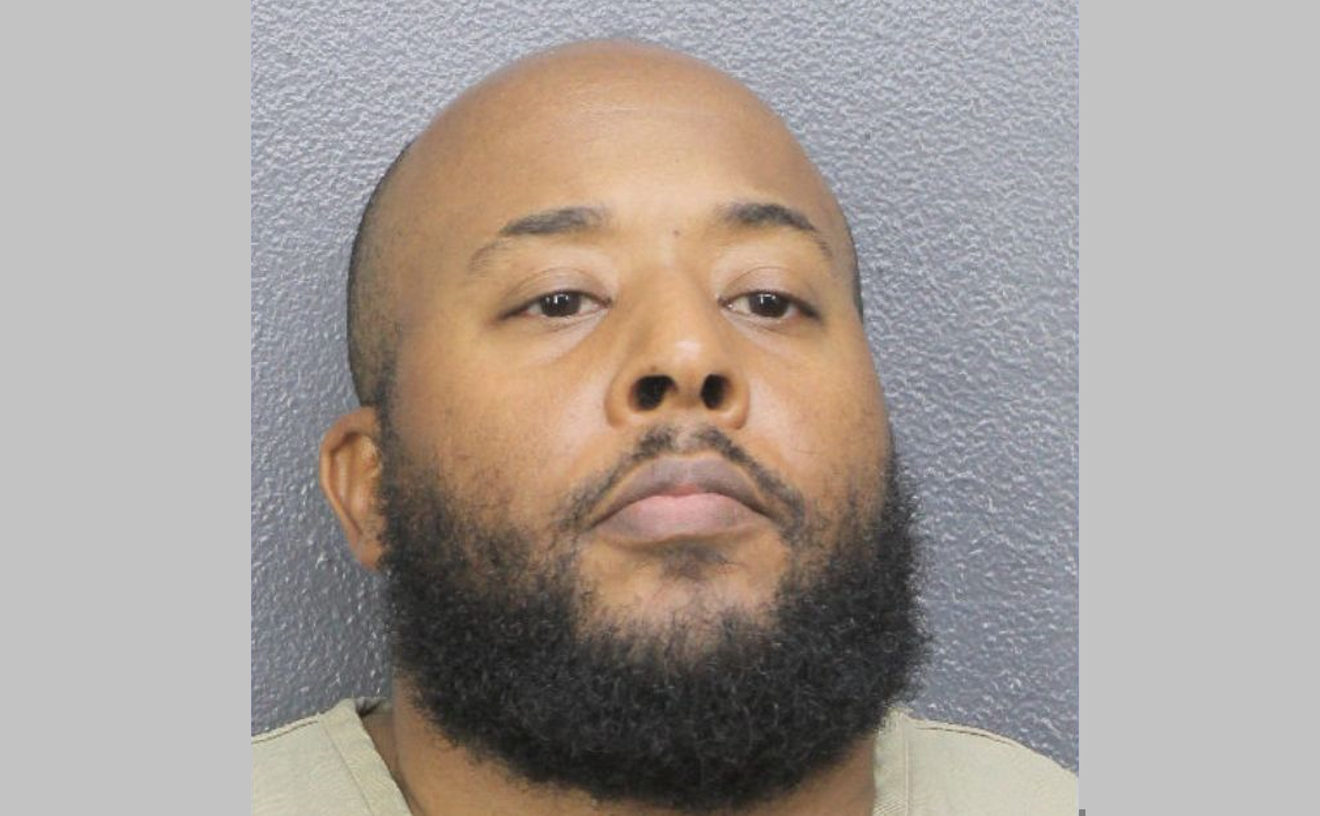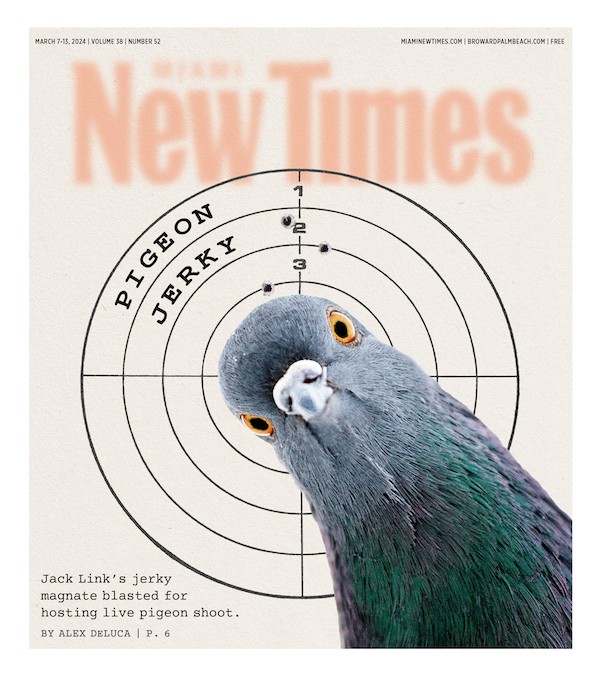In a letter addressed to Spanish-language outlets, more than 20 Latino advocacy organizations are demanding better fact-checking by reporters and more accountability for pundits.
"The disinformation and toxic rhetoric reflected in the media is disproportionately represented in Spanish media. It's made our work communicating on issues more difficult," says Ana Sofia Peláez, executive director of Miami Freedom Project, a nonprofit organization that advocates for affordable housing and other social issues.
Last week, the Miami Herald reported that hosts on Spanish AM radio stations including La Poderosa (670 AM) and Actualidad Radio (1040 AM) were spreading unconfirmed or debunked theories about the attack on the Capitol, saying that antifa — a loose coalition of anti-fascist protesters — was behind the failed insurrection. Actualidad host Agustín Acosta echoed a story about an antifa member spotted inside the Capitol a full day after it was disproven, according to the Herald.
Since then, Spanish-language radio has also blamed the Capitol riot on members of the Black Lives Matter movement, as well as "Castro supporters" and other groups that had nothing to do with the attack, without evidence, according to El Nuevo Herald reporter Lautaro Grinspan.
Hosts and guests on Spanish-language radio stations, such as Univision-owned Radio Mambí (710 AM), also shared conspiracy theories claiming widespread election fraud following the victory of President-Elect Joe Biden, despite no evidence to support those claims. (Dozens of election lawsuits by the Trump administration have been thrown out for insufficient evidence.)(Btw this afternoon Miami Spanish-language radio is adding “Maduro, Ortega and Castro supporters” to the list of supposed culprits behind the Capitol riot, in addition to “Black Lives Matter and antifa”) https://t.co/a3XVm735i5
— Lautaro Grinspan (@lautarogrinspan) January 12, 2021
On the day of the riot, Pepe Forte, host of the Radio Mambí show El Ático de Pepe, continued to imply that the elections were fraudulent after condemning the violence earlier that day.
"I believe there are shadows of fraud in the election, and doubts. And those doubts could be credible and rational," Forte said in Spanish. "There has to be a shadow of fraud...you're gonna tell me that's a lie? That's the truth." (El Nuevo Herald reports that Forte was laid off this week.)
Listeners have also noted that Radio Mambí hosts allow guests to make claims that the election was stolen without fact-checking them or providing context for any wrong or misleading statements made in real time, a practice that's common practice in mainstream news radio.
Guests on Radio Mambí have in the past made threats of violence with no qualms or pushback from hosts, including saying that people should "arm themselves to the teeth" because Black Lives Matter members would come for them, according to WLRN.Mambí featured guest is currently defending the current coup attempt. "They've stolen three elections in our faces. We're not going to allow it....They [rioters] haven't attacked anyone. They've attacked the government."
— Carlos Odio (@carlosodio) January 6, 2021
Reached by New Times, Univision president Claudia Puig said in an emailed statement that the company holds its affiliate radio stations to the same standards of accuracy as other media properties.
"Univision Radio News reporters and journalists are held to the same standards as Univision News reporters. Our entertainment shows do not usually comment on political issues. We will investigate this issue, as we take these matters seriously," Puig said.
A spokesperson for Univision further commented to New Times that all stations, be they entertainment or news, are expected to meet the same standards.
Still, racist and hateful speech have also often been allowed to fly on Spanish media outlets, along with conspiracy theories blaming Democrats for wildfires and linking them to a Biblical "Day of Judgement" for "turning against God."
Last September, a Spanish-language magazine insert called Libre that was published in El Nuevo Herald likened members of Black Lives Matter to German Nazis and demeaned Jewish people for supporting the movement, questioning their common sense. An internal investigation by the Herald found that similar racist and anti-Semitic language had been printed in El Nuevo since at least January of 2020.
Peláez, the executive director of Miami Freedom Project, says that in many cases, Spanish-language programs present opinion as fact to their viewers or listeners — and often get away with it because they're not broadcast in English.
"It's been normalized that if something is in Spanish, it can take a more extreme position. That's why we're calling this into question," Peláez says.
Peláez says the coalition of advocates does not want to censor hosts who might have differing views or tell them what to say, but they want the stations in charge to provide context and make sure that reporting is based on facts and that multiple viewpoints are offered to listeners.
"If you're presenting your opinion, there should be space for that, but there should be some context and you should present a counter-narrative. We're not asking for less speech; we're asking for more," Peláez says.
The letter from the Latino organizations, which will be sent to stations including La Poderosa, Actualidad Radio, and Radio Mambí, also calls on the outlets to include more diverse voices in their coverage. Peláez says there has been a lack of coverage of Afro-Latinos and other non-white Latinos in Spanish-language media, and she believes that including their experiences will create more balanced coverage.











